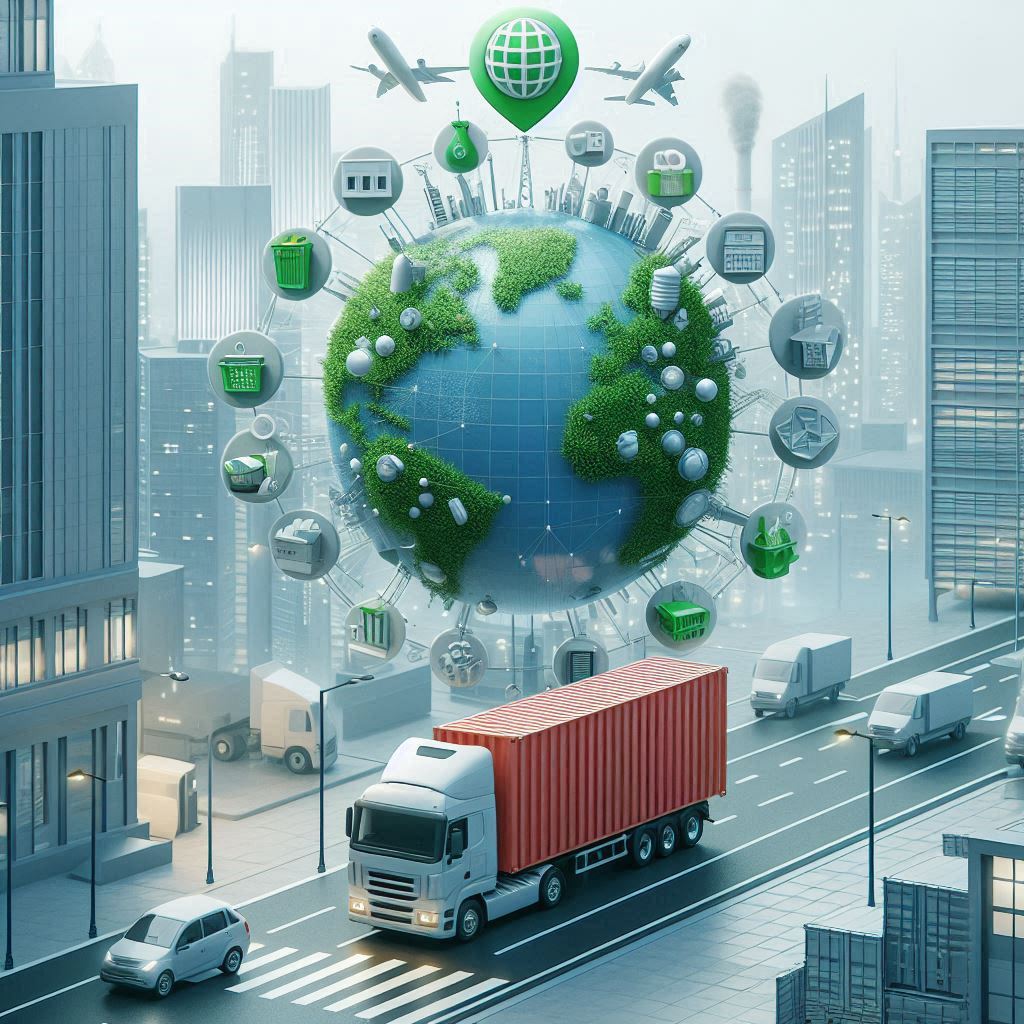Embracing sustainability in logistics is essential. By integrating renewable resources and optimizing efficiency, we not only protect our planet but also enhance operational effectiveness, driving forward the future of eco-conscious business practices.

Dear Reader,
In today’s rapidly evolving world, sustainability is no longer just a buzzword, but a fundamental aspect of doing business, especially in logistics. As environmental awareness grows, companies are recognising the need to reduce their environmental footprint and adopt greener practices. In this article, you will learn how modern logistics is transforming through the use of renewable resources and waste minimisation strategies, and the benefits these changes bring to both the environment and businesses.
The importance of sustainable logistics
Logistics plays a crucial role in the global supply chain, connecting manufacturers and consumers across vast distances. However, this extensive network can have a significant impact on the environment through resource consumption, emissions and waste. By focussing on sustainability, logistics companies can tackle these challenges head on.
Utilisation of renewable resources
One of the most important ways for logistics companies to reduce their environmental footprint is to incorporate renewable resources into their operations. These include:
Eco-friendly materials: many companies are switching from traditional packaging materials to biodegradable or recyclable alternatives. Replacing plastics with materials such as corrugated cardboard, which are not only recyclable but also often made from recycled material, can significantly reduce environmental impact.
Renewable energy: Incorporating renewable energy sources such as solar and wind power into logistics operations can drastically reduce greenhouse gas emissions. Warehouses and distribution centres equipped with solar panels are increasingly being used to reduce dependence on fossil fuels.
Waste reduction in logistics
Waste reduction is another important aspect of sustainable logistics. Companies use various strategies to minimise waste and increase efficiency:
Optimised transport routes: By using advanced route planning software, logistics companies can identify the most efficient routes, reducing fuel consumption and emissions. This not only benefits the environment, but also reduces operating costs.
Recycling initiatives: Effective recycling programmes for packaging materials help to keep waste out of landfill. Companies encourage the return and reuse of packaging, which not only reduces the amount of waste, but also reduces the need for new materials.
Lean inventory management: Lean inventory management reduces excess stock and reduces the resources required for storage and transport. This approach helps to reduce the overall environmental impact of logistics operations.
The double benefit of sustainability
The introduction of sustainable practices in logistics offers a double benefit. Firstly, it promotes environmental responsibility by reducing the environmental impact of logistics operations. Secondly, it improves the efficiency and image of companies:
Increased efficiency: sustainable practices often lead to more streamlined operations. For example, optimised transport routes can reduce fuel costs, while renewable energy sources can reduce electricity bills for warehouses.
Improved corporate image: Consumers today are more environmentally conscious and prefer to support companies that emphasise sustainability. By adopting green practices, logistics companies can improve their brand image and appeal to a broader customer base.
Conclusion
The transition to sustainability in logistics is a positive step towards protecting our environment and improving business operations. By utilising renewable resources and implementing waste reduction strategies, logistics companies can significantly reduce their environmental footprint. These practices not only promote environmental responsibility, but also improve operational efficiency and corporate image, benefiting both the business and the planet.
As sustainability continues to grow in importance, logistics companies that embrace these changes are likely to set new industry standards. It’s an exciting time for the sector as it evolves to meet the demands of a greener, more sustainable future.
Your
Thomas Hellmuth-Sander

Schreibe einen Kommentar